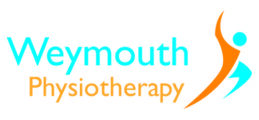Running injuries - Recovery is so important
Blog number three of our mini series of running blogs. The first being about the cause of running injuries, the second being about running whilst in pain. This one focuses on recovery.
We all want to train like warriors. Running three, four, five, hey for some of you maybe seven or more times a week and clocking 90 miles. This is all well and good as long as you have built to this slowly and in a sensible manner and hopefully you will avoid injury (See my blog on causes of running injuries for more information)
However the higher the load the more important it is to pay attention to recovery. It is no good training like a professional athlete, if you are not recovering like one. Without effective recovery your capacity will drop and even without an increase in load or running, you may start to get pain.
Whilst this blog has been written for runners it applies to everyone regardless whether you are a gym goer, a footballer or recovering from an operation so read on.
What does effective recovery look like.
First of all the most important part of recovery is rest. Allowing sufficient time between sessions to recover is super important. Particularly after high intensity or long runs. Your muscles, joints and ligaments need time to recover. The amount of rest you will need will depend on the run itself, your running background and your bodies capabilities.
The second most important in terms of recovery is sleep. Sleep is the time where your body can optimally recover. Inadequate sleep can lead to pain and injury so ensure you are getting at least 7 hours in each night. Some would argue athletes should be aiming for even higher. If you struggle with sleep there is plentiful advice out there but some simple tings to try, caffeine ban after 3pm, no phones after 9pm, darkened room, use of audio / relaxations. If you are reading this at 0100 get to bloody bed.
The third most important thing to get right is hydration nutrition. Ensure your body is getting enough water and the right macro/micro nutrients to recover. This may incorporate using protein shakes or bars, it may be taking supplements or it might just be a case of increasing the amount you eat of a well balanced diet. Without getting adequate nutrition / hydration your body will fall behind, don’t neglect it.
Modalities. There are lots of other things that anecdotally at least will help recovery. Ice baths, cryotherapy, massage, pressure therapy, cupping, foam rolling, stretching. The truth is a lot of these aren’t evidence based, however if they make you feel better there is no harm in using them. However be aware if you are needing them more regularly that they may be masking overtraining.
One final word recovery isn’t about getting over the last session it is about getting ready for your next one. Ensure you put as much effort in to as you do in to your actual sessions.
If you are currently injured get in contact to discuss how we may be able to help you. Alternatively book an appointment to see us and let us get you back on track.

